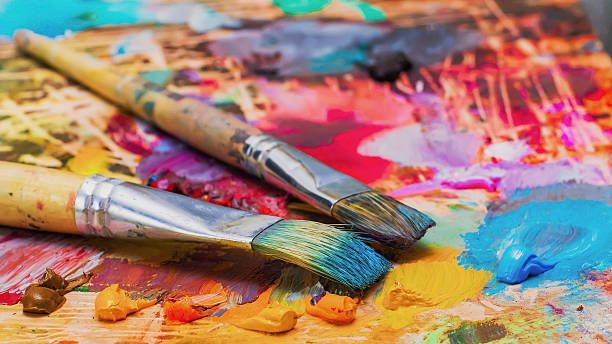Art Therapy: A new way to relax

Emotions tend to be inward-focused, creating happiness, anger, sadness, fear, or loneliness. Emotions are very complex and come with differences, from positive to negative, depending on our outside or inward environments, circumstances, thoughts, and people. Our emotions can dictate how we perceive the world around us. "Battle of the Mind" was a coined phrase by motivational speaker Jim Rohn. He believed that our thoughts, positive or negative, would influence our outward world, with emotions being the driving force to manifest those outcomes. The "battle of the mind" could influence confidence or insecurities. Some of those insecurities go so deep that they make us question our existence by wanting to change impossible things about ourselves. Creating unrealistic expectations and, therefore, setting ourselves up for disappointment. Of course, emotions become our egos. The little 'me' that screams, shouts, and does its best to protect its best interest, which is self.
According to our textbook, "Many claim that the ego is the cause of personal and worldly problems, and although this may not be far from the truth, it must also be recognized that the ego is not always bad either. A healthy ego generates high self-esteem"(Seaward, 2021). It is easy to see that emotions are heavily tied to the ego and can have a positive or negative impact based on our belief system, triggers, past, relationships, and environments. Emotions, if left unchecked, can create stress in the body, which can cause chronic conditions due to the imbalances of serotonin and dopamine. Research is starting to show a strong relationship between emotional imbalance and chemical imbalance and how they affect each other in the long run, creating chronic disease. "Research suggests that chronic stress can lead to or exacerbate mood disorders such as depression and anxiety, bipolar disorder, cognitive (thinking) problems, personality changes, and problem behaviors"(Mentalhelp.net, 2024). It's easy to see that if our emotions are out of balance, then our sympathetic nervous system is triggered to release stress hormones that lead to many health problems.
One way of getting the emotions under control is through Art Therapy. "Drawing, painting, sculpting, or any other artistic means to reveal the secrets of the unconscious mind are only part of the art therapy process"(Seaward, 2021). Through art therapy, you can access a different part of the brain that helps calm down the sympathetic nervous system and relax the mind, allowing it to rid itself of the negative emotions that can be on repeat. "Art therapy is used as an integrated healing modality for several types of chronic diseases, including hypertension irritable bowel syndrome, lupus, migraine headaches, coronary heart disease, and rheumatoid arthritis"(Seaward, 2021). Long story short, art therapy helped me last year when I'd wake up in the middle of the night with racing thoughts that were not even true. I am guessing that it was the start of premenopausal symptoms, but I learned to self-soothe by grabbing my colored markers and Bible Journal, where I'd color and draw until I felt calm and sleepy again.
I was experiencing empty nest syndrome because my daughter left for college and was on a mission trip in Cambodia for three months. I found my thoughts drifting to loneliness, guilt, shame, insecurities, unworthiness, and hopelessness. It was such an odd thing for me to feel out of control of my thoughts and emotions. I was hyper-focused on my new career, school, and maintaining close relationships, so I did not have time to sit with myself and figure out how I felt about my daughter leaving. Once I had a come-to-Jesus conversation with God and my midnight drawings, I could sleep through the night, knowing that she was safe, secure, and happy. Art therapy helped stabilize my stress and emotions these past few years with all the changes in my life and I know it can help you too. Here is a YouTube video on how you can get started today. Follow this channel for many more opportunities and ideas for art therapy.
Reference
MentalHealth.net (2024) Mental and Emotional Impact of Stress. https://www.mentalhelp.net/
stress/emotional-impact/
Seaward, B.L. (2021) Essentials of Managing Stress [5th Edition], Jones & Bartlett Learning,
LLC. Burlington MA.
Sutton, J. (2021) Pets & Wellbeing: 15 Benefits of Emotional Support Animals.
https:positivepsychology.com/pets-mental-health/
YouTube Video
Pang. E. Art YouTube Channel. https://youtu.be/pyrNsSOioPY?si=8ZFWF3WyjJAOhxLg